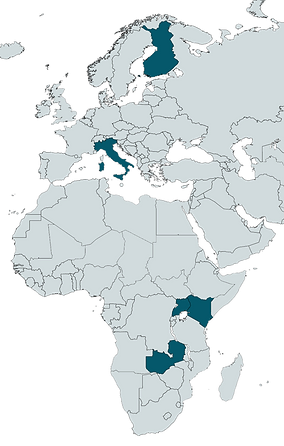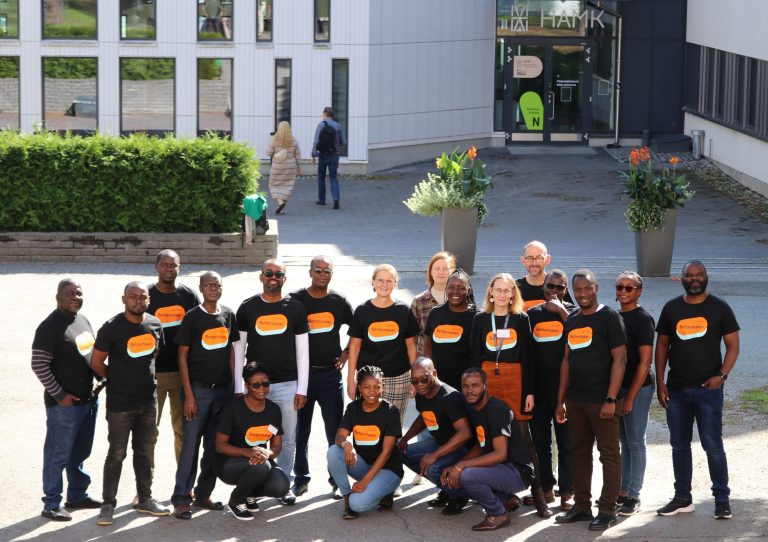
AgriSCALE
Collaborative Action for Scaling Agri-Entrepreneurship and Industry Engagement in Food and Agribusiness Training in Sub-Saharan Africa

Project information
| Project | AgriSCALE -Collaborative Action for Scaling Agri-Entrepreneurship and Industry Engagement in Food and Agribusiness Training in Sub-Saharan Africa |
| Duration | 15 Jan 2020 – 16 Apr 2020, 1 Sep 2020 – 31 Mar 2024 |
| Funding | Erasmus+ European Commission; Education, Audiovisual and Culture Executive Agency (EACEA); Capacity Building in the Field of Higher Education (CBHE) under Key Action 2: Cooperation for Innovation and Exchange of Good Practices. |
AgriSCALE is a joint initiative for reforming agri-entrepreneurship education in Sub-Saharan Africa.
Through teacher training, localised PBL (problem-based learning) methodologies, and digital learning platforms, a large number of African students will be equipped with relevant and entrepreneurial competences.
Take a look at the project’s brochure for more information.
Partner HEIs
in Africa
- Jomo Kenyatta University of Agriculture and Technology, Kenya
- Egerton University, Kenya
- Bishop Stuart University, Uganda
- Gulu University, Uganda
- University of Zambia, Zambia
- Mulungushi University, Zambia
in Europe
- Häme University of Applied Sciences, Finland (coordinating HEI)
- Aalto University, Finland
- University of Pavia, Italy
Materials
Videos

Contact


You might also like

AgrGROW
Enabling student-centered learning at higher education institutions, creating a network-based learning ecosystem and the practices of climate-smart agricultural entrepreneurship.

Zambia for agroforestry, biodiversity and climate (Z4ABC)
The overall objective of the project is to contribute to the development of climate-relevant, productive & sustainable transformation of agriculture, forestry & food systems in Zambia to help achieve Nationally Determined Contributions (NDC).

PBL-BioAfrica
PBL-BioAfrica is a collaborative project for strengthening the capacity in bioeconomy HEIs (Higher Education Institutions) in Kenya and Zambia. Reforming bio-entrepreneurship education to meet the needs in working life and to promote entrepreneurship among students and graduates will lead to economic productivity as well as environmental and social sustainability.